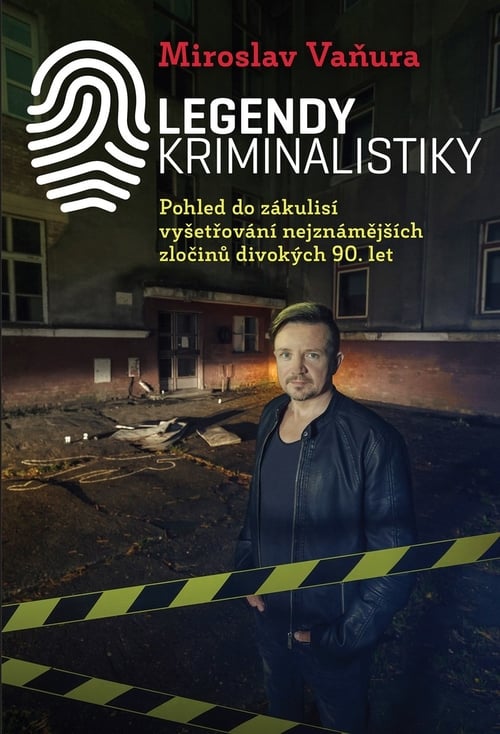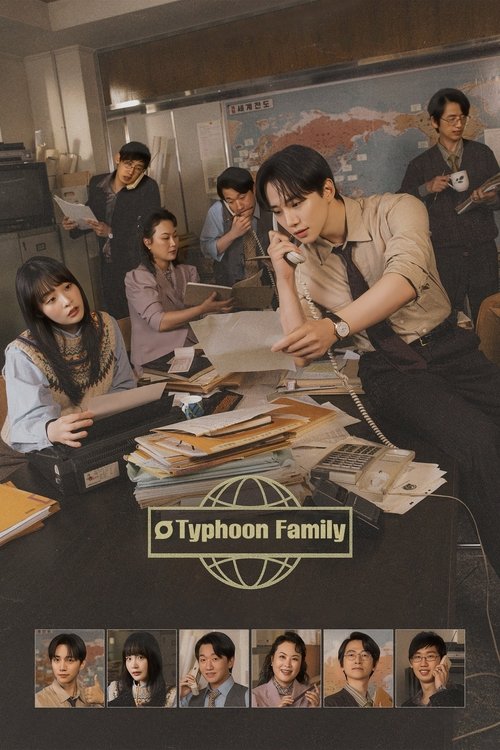
Ask Your Own Question
What is the plot?
In "Episode 7" of "Příběhy českých zločinů," the story begins with a tense atmosphere as the camera pans over a small, quiet town in the Czech Republic. The scene opens with a young woman named Klára, who is seen walking home from work late at night. She appears anxious, glancing over her shoulder frequently, suggesting she feels someone is following her. The streetlights flicker ominously, casting long shadows as she quickens her pace.
As Klára approaches her apartment building, she suddenly hears footsteps behind her. Panic sets in, and she rushes inside, locking the door behind her. Inside her apartment, she tries to calm herself, but her unease lingers. The scene shifts to her phone, where she receives a series of unsettling messages from an unknown number, heightening her fear. Klára decides to report the messages to the police, feeling increasingly threatened.
The narrative then introduces Detective Novák, who is investigating a series of similar harassment cases in the area. He is portrayed as diligent and empathetic, determined to help the victims. Novák receives Klára's report and takes a personal interest in her case, sensing her vulnerability. He arranges to meet her to gather more information, and during their meeting, Klára reveals her fears and the details of the messages. Novák reassures her that they will do everything possible to find the person responsible.
As the investigation unfolds, the story reveals a series of flashbacks showing Klára's life before the harassment began. These scenes depict her as a vibrant and ambitious young woman, working hard to build her career. However, the flashbacks also hint at a troubled past, including a previous relationship that ended badly, suggesting that her current situation may be linked to unresolved issues.
The tension escalates when Klára receives a threatening phone call late one night. The caller's voice is distorted, and they taunt her about her fears. Terrified, Klára calls Detective Novák, who immediately rushes to her apartment. Upon arrival, he finds her in a state of distress. He reassures her and suggests they set up surveillance to catch the harasser. Klára agrees, feeling a mix of fear and hope.
The next day, Novák and his team install cameras around Klára's apartment building. They monitor the footage closely, waiting for any sign of the harasser. As days pass, Klára's anxiety grows, and she struggles to maintain her daily life. The emotional toll is evident as she becomes more withdrawn and fearful, isolating herself from friends and family.
One night, while reviewing the surveillance footage, Novák spots a shadowy figure lurking near Klára's building. He quickly mobilizes his team to investigate. They set up a stakeout, hoping to catch the individual in the act. The atmosphere is tense as they wait in the dark, the only sounds being the rustling of leaves and the distant hum of the city.
Suddenly, the figure appears again, and Novák and his team spring into action. They confront the individual, who turns out to be a man named Pavel, a former acquaintance of Klára. He is apprehended and brought in for questioning. During the interrogation, Pavel reveals his obsession with Klára, explaining that he felt rejected and humiliated after their previous relationship ended. His emotional instability becomes apparent as he oscillates between anger and desperation.
As the investigation concludes, Klára learns about Pavel's arrest. She feels a mix of relief and lingering fear, knowing that the threat has been neutralized but also grappling with the emotional scars left by the ordeal. The episode ends with Klára standing on her balcony, looking out over the city, contemplating her future. The camera captures her expression, a blend of hope and uncertainty, as she takes a deep breath, ready to reclaim her life.
Related Titles
Browse All Titles →What is the ending?
In the ending of "Příběhy českých zločinů," season 1, episode 7, the investigation reaches a climax as the detectives uncover the truth behind the crime. The main perpetrator is apprehended, revealing their motivations and the emotional turmoil that led to the tragic events. The episode concludes with a sense of resolution, but also leaves lingering questions about justice and morality.
As the episode unfolds towards its conclusion, the tension escalates. The detectives, having pieced together various clues, gather in a dimly lit room filled with evidence boards and photographs. The lead investigator, visibly exhausted yet determined, reviews the case files one last time. The atmosphere is thick with anticipation as they prepare to confront the suspect.
In a pivotal scene, the detectives confront the main suspect in an interrogation room. The suspect, a middle-aged individual with a weary expression, sits across the table, their hands trembling slightly. The lead investigator leans forward, eyes piercing, and begins to unravel the suspect's story. The suspect's facade begins to crack as they recount their motivations, revealing a deep-seated pain and desperation that drove them to commit the crime. The emotional weight of their confession hangs heavy in the air, and the detectives listen intently, their expressions a mix of empathy and resolve.
As the confession unfolds, flashbacks intersperse the scene, illustrating the events leading up to the crime. The audience sees the suspect's life unraveling--financial struggles, personal loss, and a sense of hopelessness that culminates in the fateful decision to commit the act. The visuals are stark, contrasting the suspect's mundane life with the gravity of their actions.
Once the confession is complete, the detectives exchange glances, a silent understanding passing between them. They know that while justice is being served, the emotional scars left by the crime will linger. The suspect is taken away in handcuffs, their expression a mix of relief and despair, as they realize the full weight of their actions.
In the final scenes, the detectives reflect on the case. They stand outside the police station, the sun setting in the background, casting long shadows. The lead investigator speaks softly about the complexities of human nature and the thin line between right and wrong. The camera pans out, capturing the somber mood as they walk away, leaving the audience with a sense of unresolved tension about the nature of justice and the human condition.
The episode concludes with a poignant reminder that while the case may be closed, the emotional ramifications for all involved--victims, perpetrators, and investigators--will continue to resonate long after the final credits roll.
Is there a post-credit scene?
In "Episode 7" of "Příběhy českých zločinů," there is no post-credit scene. The episode concludes without any additional content after the credits roll, focusing instead on wrapping up the narrative and character arcs presented throughout the episode. The story ends on a note that emphasizes the emotional and psychological impact of the events that unfolded, leaving viewers with a sense of closure regarding the main plot.
What crime is central to the plot of Episode 7?
The central crime in Episode 7 revolves around a mysterious murder that takes place in a small town, where the investigation uncovers deep-seated secrets among the townspeople.
Who is the main investigator in Episode 7, and what drives their investigation?
The main investigator in Episode 7 is Detective Janek, whose relentless pursuit of the truth is driven by a personal connection to the victim, as well as a desire to bring justice to the community.
What role do the townspeople play in the investigation of the murder?
The townspeople play a crucial role in the investigation, as their testimonies and hidden agendas reveal layers of complexity surrounding the victim's life and the relationships within the community.
How does the episode portray the emotional impact of the murder on the victim's family?
The episode poignantly portrays the emotional turmoil of the victim's family, showcasing their grief, confusion, and the strain it places on their relationships as they grapple with the loss and the unfolding investigation.
What key evidence is discovered that shifts the direction of the investigation?
A key piece of evidence discovered is a hidden diary belonging to the victim, which contains entries that hint at potential motives and suspects, significantly shifting the direction of the investigation.
Is this family friendly?
"Příběhy českých zločinů," particularly in episode 7, delves into themes of crime and moral ambiguity, which may not be suitable for younger audiences or sensitive viewers. The episode features scenes that include:
- Violence: There are depictions of crime scenes that may include blood or injuries, which could be distressing.
- Murder Investigation: The narrative revolves around a murder case, exploring the darker aspects of human nature and the impact of crime on families.
- Emotional Distress: Characters experience significant emotional turmoil, including grief and fear, which may be intense for some viewers.
- Themes of Betrayal: The episode explores complex relationships and betrayal, which could be unsettling for younger viewers.
These elements contribute to a mature atmosphere that may not be appropriate for children or those sensitive to such themes.













